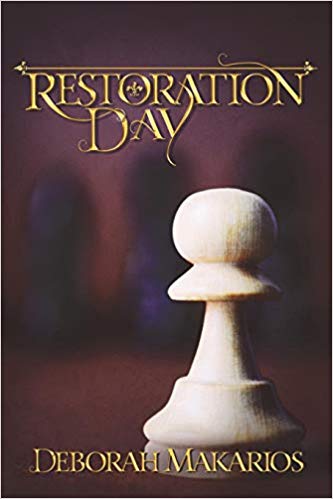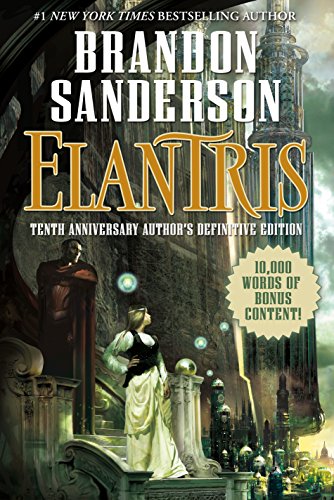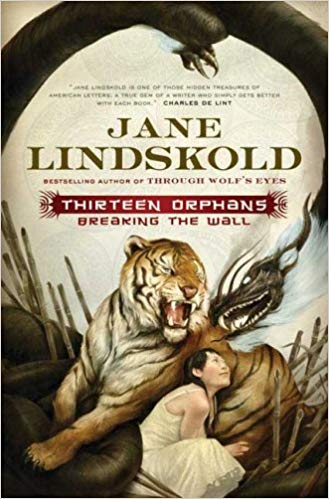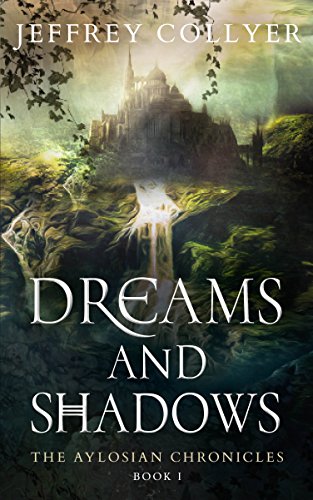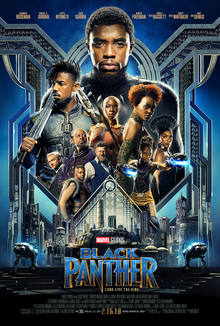
The setting: an ancient African civilisation, lost to the outside world. Populated by proud warriors under the leadership of a benevolent monarch, endowed with fabulous wealth and colourful outfits, protected by natural barriers, magical artefacts, or lost technology. Into this reclusive kingdom stumbles an outsider from the Western world, bearing the best of intentions and yet also the seeds of the kingdom’s destruction.
Is this the plot of a vintage pulp by Rider Haggard or Edgar Rice Burroughs, or Marvel’s latest superhero flick? The answer, of course, is both. TV Tropes calls this trope the “Lost World” (often turning up as part of a “jungle opera”). It’s one of those classic tropes that turns up in a lot of vintage fiction but has fallen out of use these days. One major reason for this is that now we have maps and satellite coverage of the wildest continents; it’s no longer credible that in 2018 there might still be lost civilisations lurking in distant jungles.
Another reason must surely be social. Haggard and Burroughs often depicted their lost civilisations as being barbaric and decadent. There was also often a note of racial snobbery in the picture as well. The benevolent monarch was often white (and female, and nubile) while the outsider was definitely a white explorer who would eventually be forced to rescue the queen from dangers posed by her less enlightened people.
I’m already generalising wildly, but despite the fact that these stories usually put some twist on the basic outline (in King Solomon’s Mines, for example, the love interest is black), it’s obvious why people today would feel uncomfortable with these old tropes. But for many of us, that’s rather a shame. These vintage adventure stories spoke to us for all sorts of good reasons. Who doesn’t dream of exploring wonderful, colourful, ancient cultures? Who doesn’t daydream that wonderful undiscovered things still lurk in the corners of the globe? Who wouldn’t be entranced by a vision of Africa full of pageantry, drumbeats, and ancient kings? Above all, who doesn’t like swashbuckling tales of love and adventure?
The release of the very first Black Panther trailer hit me like a shot of adrenaline to the imagination. Having seen the film, I can tell you that what this story has in common with the Rider Haggard romances of my youth doesn’t merely stop with the lush Afrofuturist visuals—it also includes major plot elements. Here I found all the best things from those old books, updated for a generation which has repented of some old faults and gained some new technology along the way.
Wakanda is protected from the outside world by a holographic shield, not blank spaces on maps. Its technology is futuristic rather than retro, but it draws from the same well as books like She or King Solomon’s Mines did: both are an image of the ancient kingdoms and empires of Africa, undisturbed by internecine wars or foreign exploitation. Where Black Panther departs from the template is worth noting, because it shows exactly how to redeem a problematic old trope.
First, Black Panther’s main cast is almost entirely black. Even the outsider figure whose coming threatens this secret kingdom is black. In the vintage adventures, the viewpoint figure was almost always white, which meant that the stories were very much written from a white perspective. The result, unavoidably, was a tale populated by Africans, which rarely allowed their own perspective to come through. Black Panther neatly sidesteps this pitfall by choosing to tell the story of its Lost World through the perspective of its own ruler.
Second, Black Panther uses the outsider not as its hero but as its villain. The result could have been been cynical or embittered, especially if the outsider had been white. Of course, this wouldn’t be so far removed from actual African history, and those stories should definitely be told, no matter how uncomfortable some of the audience may feel. By making its villain who he is, however, Black Panther makes the story not so much about us versus them, as about the mistakes we all make in our own lives, in our own families. Paradoxically, the fact that so many of the major Black Panther characters are black allows non-black audiences to look beyond race to immerse themselves in this new world and identify themselves with its characters in the same way that we identify with hobbits, dwarves, and Elves in Tolkien’s The Lord of the Rings and The Hobbit.
The third notable way in which Black Panther departs from the Lost World template is the fact that its lost world of Wakanda survives the events of the film. In the vintage stories, the Lost World is usually fragile and decadent, awaiting merely the careless touch of the outside world to crumble into chaos and destruction. Wakanda by contrast is strong and vigorous, which is pointed out in one of the film’s most resonant lines, as a character argues for Wakanda to drop its illusions and emerge onto the world’s stage as the developed and wealthy nation it is. Wakanda is the one thing the vintage authors never imagined: an ancient civilisation that retains strength and resilience through the active virtues of courage and responsible service.
Black Panther up-ends the Lost World trope with just a few clever tweaks. And thinking it over, here are some pointers for how modern authors can reach into the past for those idealistic, swashbuckling, noblebright stories, without also bringing along their unfortunate implications.
You could recycle an old trope, but tell it from the perspective that usually gets overlooked—like a damsel in distress story which is told from the perspective of a damsel. Or you could cut out the oversaturated perspective altogether, like a damsel in distress story where the knight trying to rescue the damsel is a female herself (as Edmund Spenser did in Book III of The Faerie Queene!)
You could reverse the roles of hero and villain, without ever losing sight of what makes the difference between heroes and villains. Or you could reverse the expected dynamic of strength and weakness, like a powerful dragon-shifter being held captive by a guardian who wants to save his (or her) kingdom from destruction.
You could overturn the usual ending. Maybe the damsel in distress doesn’t marry her rescuer at the end. Maybe she doesn’t get rescued, or maybe she finds her own way to freedom.
Of course, none of these tweaks will guarantee that your story is any good. But all of them have the potential to update tired old tropes for a new lease on life.
Have you seen Black Panther? What did you think of it? Tell me about it in the comments!
This guest post was written by Suzannah Rowntree. When she isn’t travelling the world to help out friends in need, she lives in a big house in rural Australia with her awesome parents and siblings, writing historical fantasy fiction. If you like the fiction of CS Lewis, GK Chesterton, Stephen Lawhead, or ND Wilson, you’ll probably enjoy her stories too. Find her books on Amazon by clicking here.

